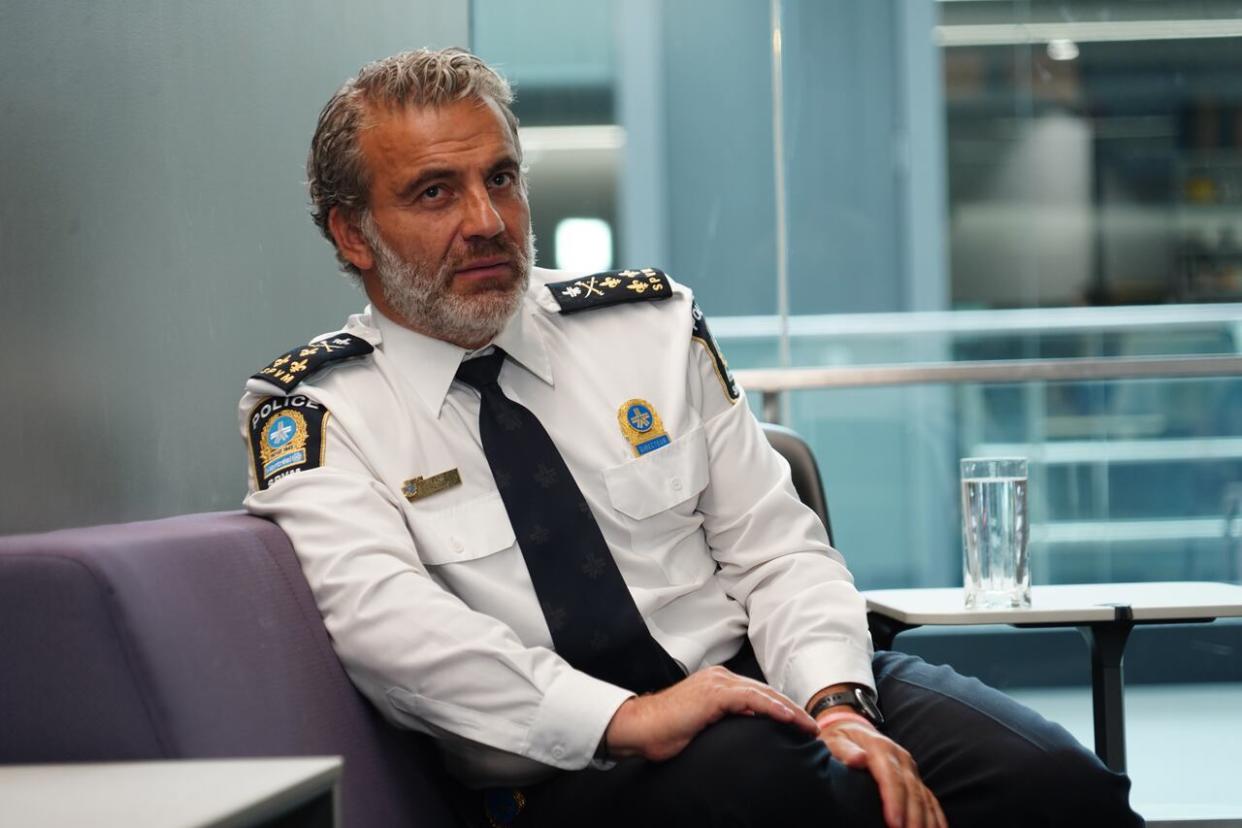Montreal's new police chief talks priorities, recruitment and racial profiling

Fady Dagher was sworn in as Montreal's new police chief in January with a promise to reduce street violence and to help officers understand the reality of their community and the issues people face, like mental illness and precarious living.
Since then, he says he has been working on recruitment, training and the policies of the Service de police de la Ville de Montréal (SPVM) as it struggles to recruit new officers.
Despite a report in June on persistent systemic biases in street checks, Dagher said the SPVM won't implement the report's main recommendation of a moratorium on random police stops. He says his goal is to change the SPVM's culture as a whole to get to the root of racial profiling in the police service.
Dagher has said he wants police recruits to immerse themselves in the communities they serve before starting the job. This spring, he spent four nights in four of the city's homeless shelters.
CBC Montreal's Shawn Apel checked in with Dagher about his time as police chief so far and the challenges the SPVM is facing.
Below is an excerpt of their conversation. The questions and answers have been edited for clarity.
LISTEN: Montreal's new police chief on Radio Noon:
Q: What parts of the SPVM's police culture are good and what parts need to change?
A: To be able to dig, and dig and dig until you get the right suspect. That kind of culture where we push until we get the result is, for me, something that we have to keep doing. The issue is with racial profiling — when police officers with conscious or unconscious bias take some actions without even knowing that they are biased. It really creates mistrust. We create fear between the community and the police. And it's not even successful for our work.
Q: You have talked a lot about the need to attract and retain more officers in Montreal. How do you get more officers to come here?
A: We just announced a few weeks ago that we're going to be paying for people's tuition at the Nicolet police academy, which is between $10,000 and $10,500. But in exchange, they're going to have to sign a contract with us for five years. Most of the people are leaving the force between one and three years.
But I'm not stupid. I know that it costs a fortune to live in Montreal. I know that there's a lot of social pressure and media pressure on the police officers, not all of them want to go through that pressure. But I keep telling them if you do the job the right way, if anybody filmed you, if you are still doing the job the right way, we will back you up. But it is difficult, to be honest with you. We've been having a lot of challenges to be able to hire police officers this year.
Q: And if you get your way, you're going to force them to take a different approach?
A: The police officer understands that the approach that I want them to prioritize is the dialogue, the mediation. The best weapon that they have on themself is not the weapon on the belt. It's the weapon on the mouth. Use your voice, talk to the people. The behaviour of my police officer[s] is extremely important. We are the professionals and we are the one[s] that should keep the tone on the call. So, if somebody is screaming, lower your voice and bring him down. I think cops, what they need in 2023 and in future years, they need tools. They need tools, and this is my duty, my role, to give them more tools to be able to face the complexity of a human being.
Q: If you're not going to end random street checks, how confident can you be that an average cop is not motivated by racism, given the evidence that people of colour are stopped at a much higher rate?
A: This is what I promised I will do in the next few months, in the fall. I will look into the politics of arrests and then I'm going to bring the visible minority communities to come and decide with us what kind of intervention we can do in the community. I think we need to touch the roots, the cause of the problem, which is racism and discrimination. We have to have the tough talk with my police officers to make them understand that they're going the wrong way, and really the special training for all new officers.
Q: Can I ask you a little bit about that time that you spent living on the streets and in the shelters? What did you learn from the experience?
A: After my third night, I was ready to quit — not sleeping out of noise, some aggressivity, the smell, the heat. And God knows that the people who work there, they do the best they can. They're fantastic. They are remarkable. These are the real actors that we need more [of] and those groups [need] to be more financed. I have so much to learn from them, from the partners on the street who are the best thing that can happen to the province of Quebec. Keeping the social workers, keeping this social intervention on the street with the communities. I learned a lot and that's why I want to build more bridges with them.


